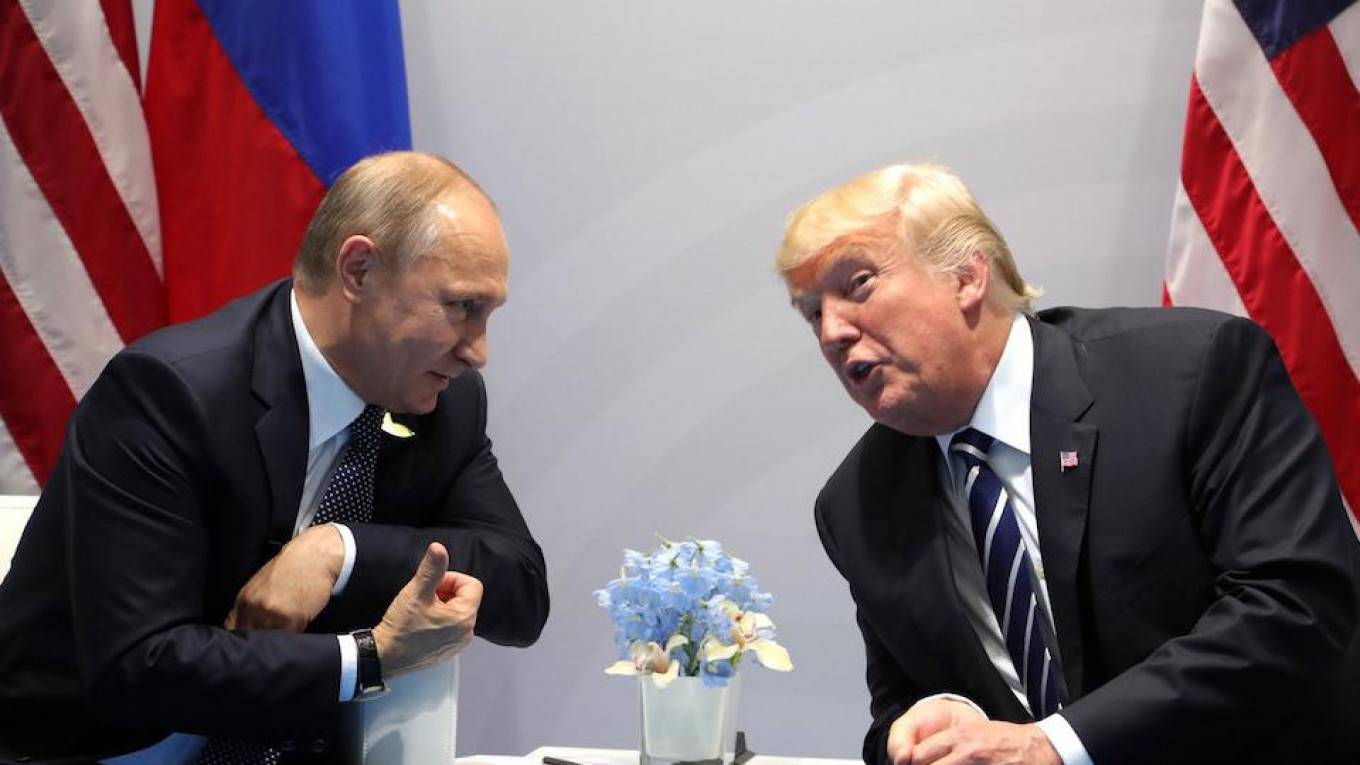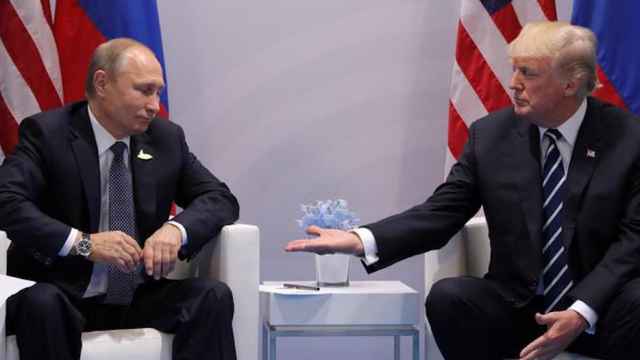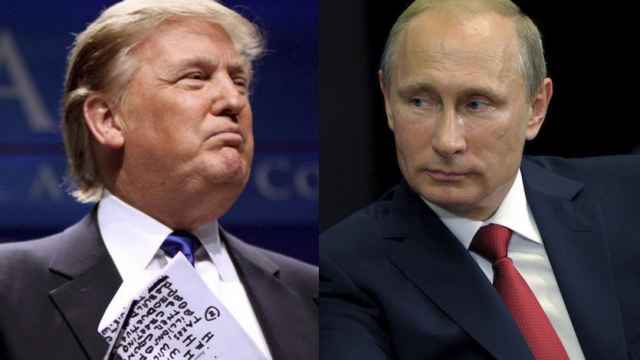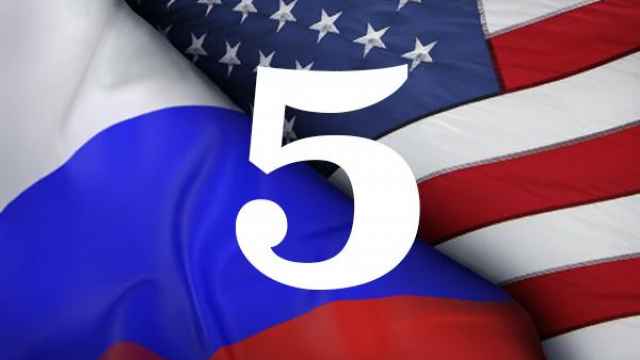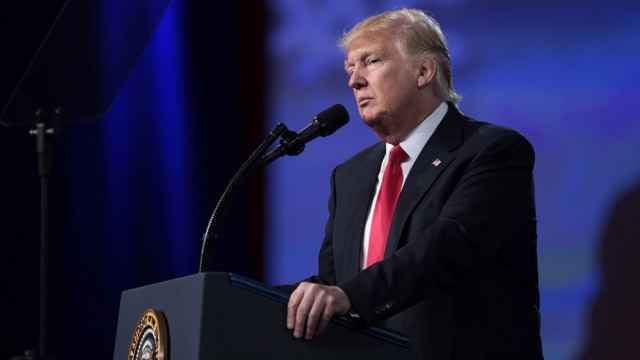Given the volatility of U.S.-Russia relations, President Putin and President Trump’s encounter at the G20 Summit was destined to be a success.
How could it not be? With the bar set so low, anything other than a presidential brawl would pass off as a diplomatic breakthrough.
But while the dust is still settling, it is important to take stock of the meeting’s tangible results, measured by the depth and breadth of issues covered. By these counts, the first presidential meet was underwhelming and a disappointment.
The meeting made clear just how little the leaders agree on. Both were entrenched. Neither side was prepared to explore serious compromises.
"It was a meeting of two strategic adversaries, who barely found a way to keep talking through their differences"
It was unrealistic to expect the first meeting would produce a strategic vision for the future of the relationship. But Putin and Trump could have announced a framework for continued discussions or at least committed to another meeting in November, during the annual APEC summit.
The only deliverable is a scrappy local cease-fire on a secondary front in south-west Syria, which went into effect Sunday morning. But even that agreement depends on the goodwill of actors not party to it, including Syrian President Bashar Assad and Iran. Both are likely to violate it since it goes against their interests.
President Putin hailed the cease-fire as a breakthrough, but several other breaks in hostilities brokered within the past year have not lasted more than a month.
There was no progress on Ukraine. Moscow is eager to sell the appointment of a U.S. special envoy on Ukraine as a breakthrough. For Russia, it signals U.S. recognition that Ukraine is an issue for Moscow and Washington to decide between themselves.
In reality, the appointment is not a tool to decide Ukraine’s fate behind its back. And the new U.S. envoy, Kurt Volker, is a hawk on Russian meddling in Ukraine.
There has been zero progress on North Korea. Moscow and China both want the United States to accept a nuclear North Korea, capable of deterring U.S. attacks. For Russia, North Korea’s nuclear and missile programs are a check on U.S. global power.
Washington has two remaining options for containing North Korea — building missile defenses in Asia and imposing sanctions on companies doing business with the country. But Moscow is focused on stalling both.
Lastly, there is a stalemate on bilateral issues, including Russian meddling in the U.S. election, diplomatic security, and sanctions. There was no commitment on the New START Treaty which expires in 2021, or efforts to salvage the INF Treaty, a cornerstone of European security.
Putin did win one important point: Trump signaled he was eager to forget the row over the Russian election meddling without making Moscow pay much of a price.
But Foreign Minister Sergei Lavrov may have oversold Trump’s reaction, by saying that Trump accepted Putin's assurances the Kremlin did not meddle in the election.
Lavrov’s comments will not go down well in the U.S. Congress, and it may make legislative action to impose sanctions for Russian interference more likely. The proposal to create a working group on cybersecurity is a good way to punt the troublesome issue, but will not make it go away completely.
Putin also lost a humiliating point to Trump. He failed to secure the release of the seized Russian diplomatic properties, also known as the dachas. Apparently, Trump did not feel Putin yielded enough ground on Russian meddling and diplomatic security.
It was a meeting of two strategic adversaries, who barely found a way to keep talking through their differences — this is the "success" both sides are keen on selling to their domestic audiences.
But dialogue and discussions are not policy goals. They are a means to finding solutions. And those require painful compromises on core interests for which neither side is ready.
Going forward, the relationship will remain adversarial. Moscow may moderate its media message. It may stop accusing the U.S. of abetting terrorists in Syria. But substantively, the agenda will remain contentious.
Real progress will require serious policy adjustments or reversals on issues like Ukraine and North Korea.
A Message from The Moscow Times:
Dear readers,
We are facing unprecedented challenges. Russia's Prosecutor General's Office has designated The Moscow Times as an "undesirable" organization, criminalizing our work and putting our staff at risk of prosecution. This follows our earlier unjust labeling as a "foreign agent."
These actions are direct attempts to silence independent journalism in Russia. The authorities claim our work "discredits the decisions of the Russian leadership." We see things differently: we strive to provide accurate, unbiased reporting on Russia.
We, the journalists of The Moscow Times, refuse to be silenced. But to continue our work, we need your help.
Your support, no matter how small, makes a world of difference. If you can, please support us monthly starting from just $2. It's quick to set up, and every contribution makes a significant impact.
By supporting The Moscow Times, you're defending open, independent journalism in the face of repression. Thank you for standing with us.
Remind me later.



